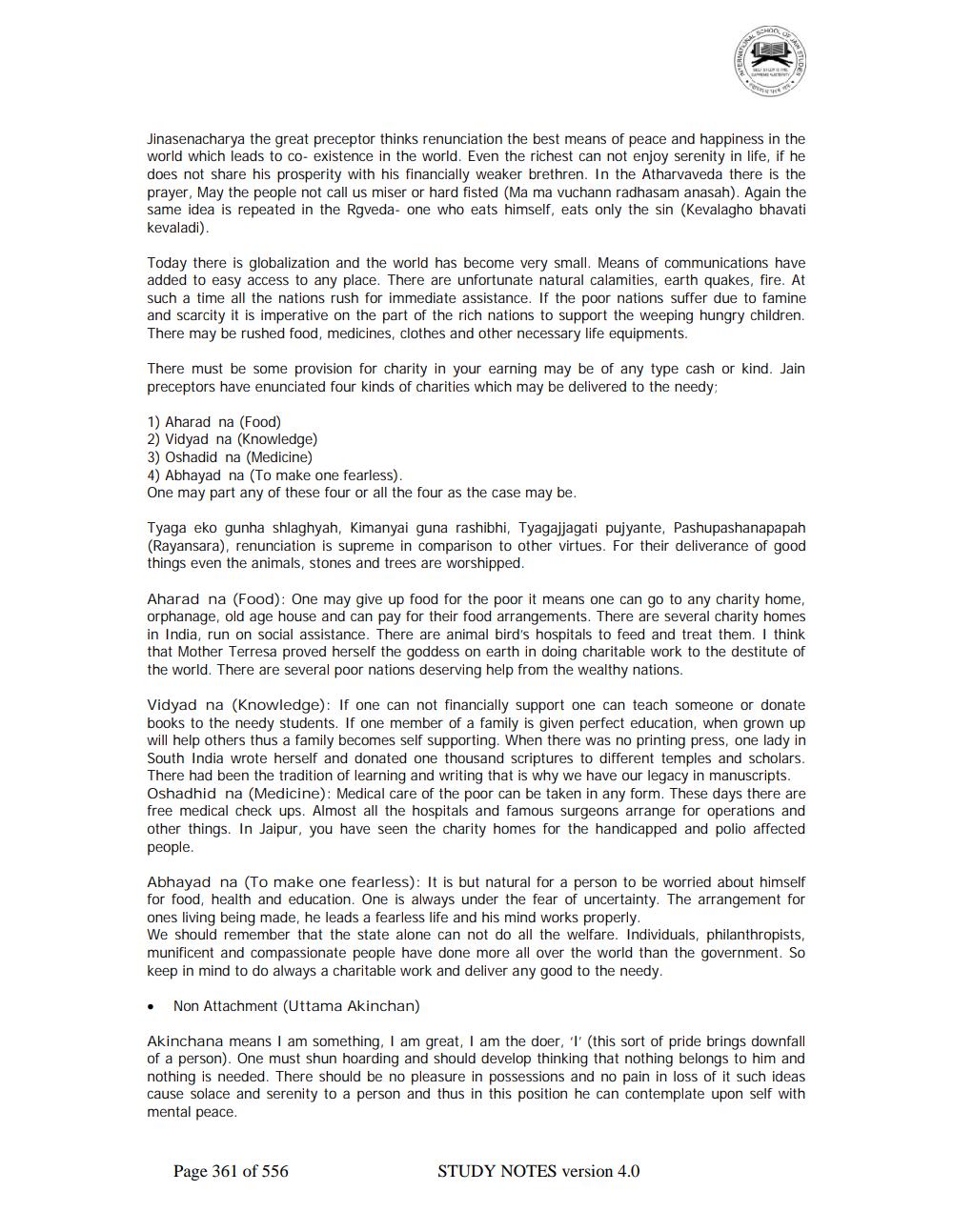________________
Jinasenacharya the great preceptor thinks renunciation the best means of peace and happiness in the world which leads to co-existence in the world. Even the richest can not enjoy serenity in life, if he does not share his prosperity with his financially weaker brethren. In the Atharvaveda there is the prayer, May the people not call us miser or hard fisted (Ma ma vuchann radhasam anasah). Again the same idea is repeated in the Rgveda- one who eats himself, eats only the sin (Kevalagho bhavati kevaladi)
Today there is globalization and the world has become very small. Means of communications have added to easy access to any place. There are unfortunate natural calamities, earth quakes, fire. At such a time all the nations rush for immediate assistance. If the poor nations suffer due to famine and scarcity it is imperative on the part of the rich nations to support the weeping hungry children. There may be rushed food, medicines, clothes and other necessary life equipments.
There must be some provision for charity in your earning may be of any type cash or kind. Jain preceptors have enunciated four kinds of charities which may be delivered to the needy:
1) Aharad na (Food) 2) Vidyad na (Knowledge) 3) Oshadid na (Medicine) 4) Abhayad na (To make one fearless). One may part any of these four or all the four as the case may be.
Tyaga eko gunha shlaghyah, Kimanyai guna rashibhi, Tyagajjagati pujyante, Pashupashanapapah (Rayansara), renunciation is supreme in comparison to other virtues. For their deliverance of good things even the animals, stones and trees are worshipped.
Aharad na (Food): One may give up food for the poor it means one can go to any charity home, orphanage, old age house and can pay for their food arrangements. There are several charity homes in India, run on social assistance. There are animal bird's hospitals to feed and treat them. I think that Mother Terresa proved herself the goddess on earth in doing charitable work to the destitute of the world. There are several poor nations deserving help from the wealthy nations.
Vidyad na (Knowledge): If one can not financially support one can teach someone or donate books to the needy students. If one member of a family is given perfect education, when grown up will help others thus a family becomes self supporting. When there was no printing press, one lady in South India wrote herself and donated one thousand scriptures to different temples and scholars. There had been the tradition of learning and writing that is why we have our legacy in manuscripts. Oshadhid na (Medicine): Medical care of the poor can be taken in any form. These days there are free medical check ups. Almost all the hospitals and famous surgeons arrange for operations and other things. In Jaipur, you have seen the charity homes for the handicapped and polio affected people.
Abhayad na (To make one fearless): It is but natural for a person to be worried about himself for food, health and education. One is always under the fear of uncertainty. The arrangement for ones living being made, he leads a fearless life and his mind works properly. We should remember that the state alone can not do all the welfare. Individuals, philanthropists, munificent and compassionate people have done more all over the world than the government. So keep in mind to do always a charitable work and deliver any good to the needy.
•
Non Attachment (Uttama Akinchan)
Akinchana means I am something, I am great, I am the doer, 'l' (this sort of pride brings downfall. of a person). One must shun hoarding and should develop thinking that nothing belongs to him and nothing is needed. There should be no pleasure in possessions and no pain in loss of it such ideas cause solace and serenity to a person and thus in this position he can contemplate upon self with mental peace.
Page 361 of 556
STUDY NOTES version 4.0




